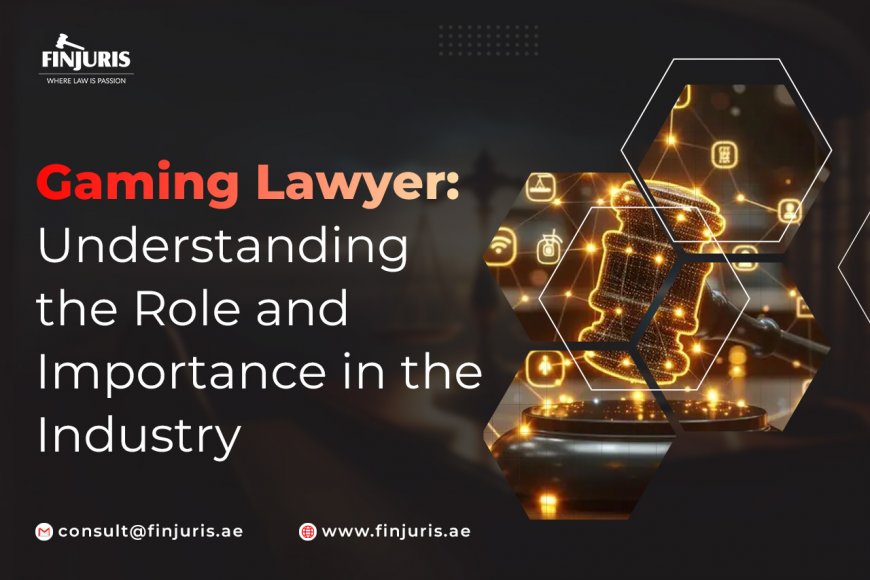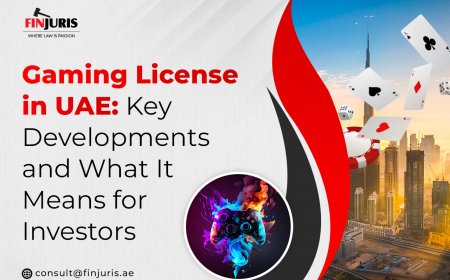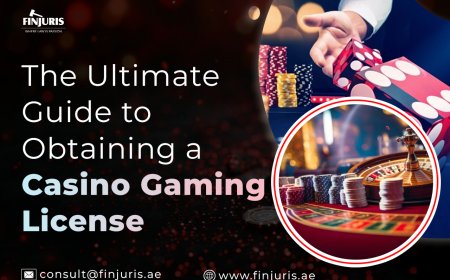Gaming Lawyer: Understanding the Role and Importance in the Industry
Discover the role of gaming lawyers in the industry, from legal compliance to intellectual property and contracts.

The gaming industry has grown exponentially over the past few decades, with millions of players, developers, and businesses involved across the globe. As the industry continues to evolve, legal complexities related to gaming laws have also increased. Whether it’s a game developer seeking advice on intellectual property rights or an online gaming platform navigating regulatory compliance, gaming lawyers play an essential role in ensuring businesses and individuals operate within the bounds of the law.
What is a Gaming Lawyer?
A gaming lawyer is a legal professional who specializes in the legal aspects of the gaming industry. They are experts in various areas of law that pertain to video gaming, online gambling, esports, fantasy sports, and other gaming-related activities. Gaming lawyers advise clients on matters such as licensing, intellectual property, contracts, compliance with gambling laws, regulatory issues, advertising, and consumer protection. Their expertise ensures that gaming companies and individuals are protected legally while also complying with the ever-changing laws governing the gaming sector.
Gaming law is a broad and dynamic field, involving a variety of legal disciplines, including intellectual property law, entertainment law, contract law, and criminal law. With the rapid growth of online gaming and gambling platforms, gaming lawyers have become indispensable to companies that operate in these sectors.
The Role of a Gaming Lawyer in the Industry
Licensing and Regulatory Compliance
One of the primary roles of a gaming lawyer is to assist clients with licensing and regulatory compliance. In most countries, gaming and gambling activities are regulated by government authorities, and these regulations vary widely from region to region. For example, in the United States, online gambling and gaming are subject to state-specific regulations, while in the European Union, laws differ by country.
A gaming lawyer ensures that businesses comply with these laws, guiding them through the complex process of obtaining licenses to operate legally in specific jurisdictions. This is especially critical for online gaming companies and gambling platforms that must adhere to regulations governing online transactions, player age verification, and anti-money laundering practices.
Furthermore, gaming lawyers work to ensure that businesses understand and implement the required compliance measures to avoid potential legal issues. They advise clients on responsible gaming practices, consumer protection laws, and other regulatory requirements to mitigate risks and prevent penalties or shutdowns.
Intellectual Property (IP) Protection
The gaming industry thrives on creativity and innovation. Game developers, designers, and publishers invest significant resources into creating games, and intellectual property (IP) is one of their most valuable assets. Gaming lawyers play a crucial role in protecting IP by advising clients on copyright, trademarks, and patent laws.
For example, game developers often need to secure copyrights for the design, art, and code of the games they create. A gaming lawyer can help ensure that the game’s content is adequately protected and that no one can copy or infringe upon it without permission. Additionally, gaming lawyers help businesses protect their trademarks, such as logos and brand names, ensuring that they maintain a unique identity in a crowded marketplace.
In addition to protecting the creators’ rights, gaming lawyers also advise on IP licensing. If a game developer wants to allow others to use their intellectual property (such as licensing a game for merchandise or for adaptation into other media), a gaming lawyer can draft and negotiate contracts that ensure the developer receives appropriate compensation and retains control over their creations.
Esports and Tournament Law
Esports is a rapidly growing industry that has become a significant part of the global gaming ecosystem. With the rise of competitive gaming, new legal issues have emerged, including contracts for professional players, team management, broadcasting rights, and sponsorship deals.
Gaming lawyers play an essential role in this area by drafting contracts for professional gamers, ensuring they are fairly compensated, and protecting their rights. They also negotiate sponsorship agreements between teams and corporate sponsors, helping esports teams secure financial backing.
Moreover, gaming lawyers help ensure that esports tournaments comply with relevant laws and regulations. This includes ensuring fair play, resolving disputes, and addressing issues such as cheating and match-fixing. As esports grows, the legal complexities of organizing and participating in tournaments will continue to evolve, and gaming lawyers will remain crucial in navigating these challenges.
Consumer Protection and Advertising
Gaming lawyers also focus on protecting consumers’ rights in the gaming industry. This includes ensuring that games and gambling platforms meet specific standards regarding fairness and transparency. Gaming companies must comply with consumer protection laws, including providing clear terms and conditions, ensuring safe transactions, and protecting users' personal and financial information.
Advertising in the gaming sector is another area where legal expertise is vital. Gaming companies must adhere to strict advertising guidelines, especially when marketing to minors or promoting gambling-related content. A gaming lawyer ensures that marketing campaigns follow legal requirements and do not mislead consumers or violate advertising standards.
Gaming lawyers are also instrumental in advising clients on data protection laws, especially in light of regulations like the General Data Protection Regulation (GDPR) in the European Union. These laws govern how businesses collect, store, and use consumer data, and non-compliance can result in hefty fines and reputational damage.
Dispute Resolution and Litigation
Gaming lawyers handle legal disputes between parties in the gaming industry. Disputes may arise between developers and publishers, between players and gaming platforms, or even between competitors in the market. In many cases, gaming lawyers work to resolve disputes through negotiation, alternative dispute resolution (ADR), or arbitration.
When disputes cannot be resolved amicably, a gaming lawyer may represent a client in court. Litigation in the gaming industry can involve various issues, such as breach of contract, IP infringement, unfair competition, or consumer complaints. A gaming lawyer will ensure that the client’s case is presented effectively in court and that their rights are protected throughout the legal process.
The gaming industry is a vibrant and fast-growing sector that is complex from a legal perspective. As online gaming, esports, and gaming-related services expand, the need for legal professionals who specialize in gaming law becomes even more crucial. A gaming lawyer plays an indispensable role in helping businesses and individuals navigate the ever-changing regulatory landscape, ensuring compliance, protecting intellectual property, and resolving disputes. Whether you’re a game developer, esports team, or gaming platform operator, seeking legal advice from a qualified gaming lawyer can help safeguard your business and keep you ahead of legal challenges in this exciting industry.
What's Your Reaction?




















